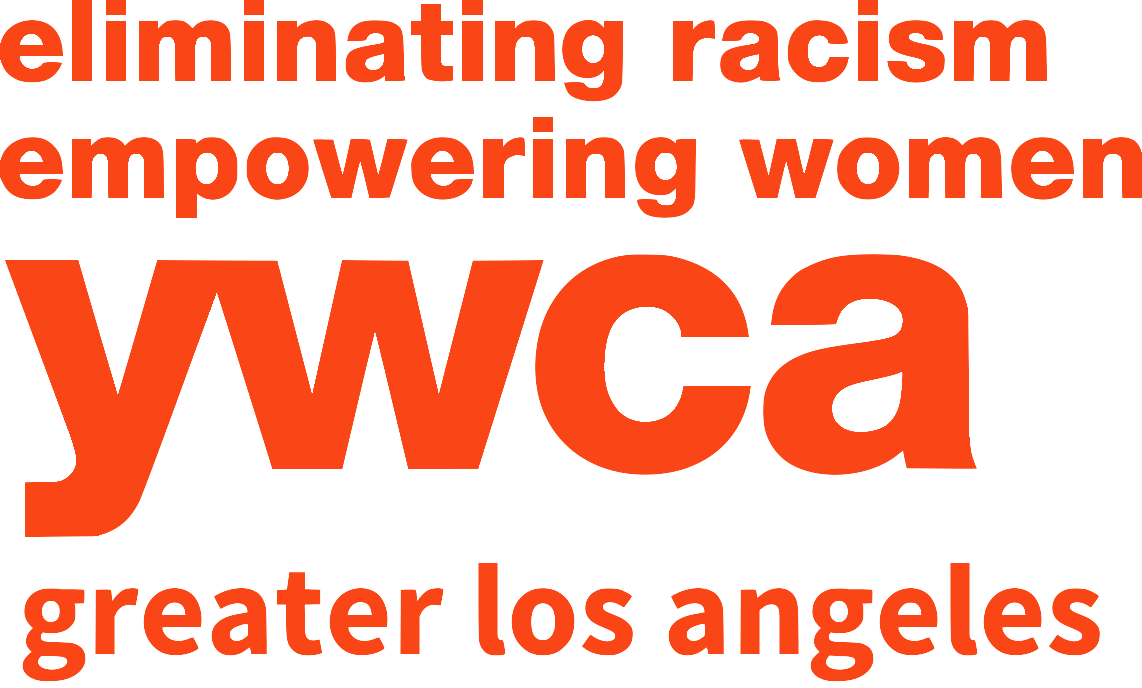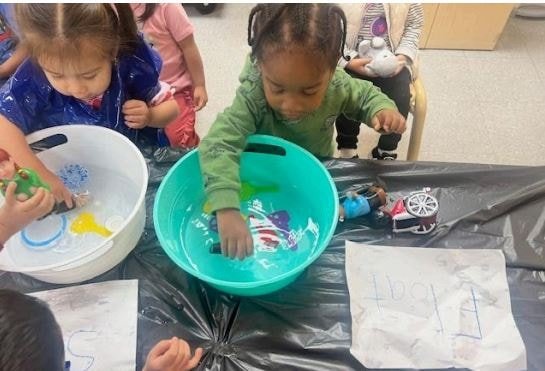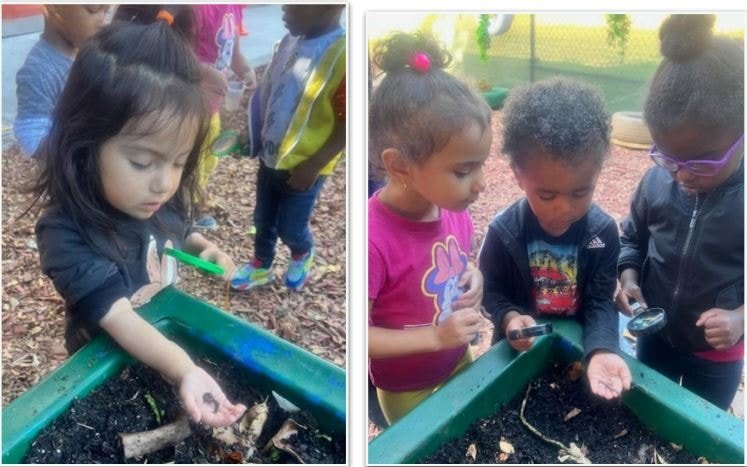How Early Education Empowers Children for Lifelong Success and Growth
The foundation of a child’s future is built during their earliest years. Early childhood education (ECE) serves as the bedrock for critical cognitive, social, and emotional development. For families and professionals dedicated to nurturing young hearts and minds, understanding the profound impact of ECE is essential. This post explores how early education shapes lifelong growth and success, while offering actionable insights for parents and educators alike. Investing in high-quality early education not only equips children with essential skills but also fosters a more skilled and competitive workforce, ultimately leading to improved communities and a brighter future for all.
What is Early Childhood Education?
Early childhood education encompasses structured learning through early childhood education programs for children from birth to age 6, traditionally up to third grade. It is a pivotal period for a child’s development, setting the stage for future learning and growth. The education setting up children during these formative years is crucial for enhancing essential skills, fostering independence, and encouraging parental involvement to create a supportive environment that empowers children.
A Historical Perspective: The concept of ECE emerged during the Enlightenment as educators began acknowledging the importance of early learning.
A Public Policy Focus: Today, ECE remains a focal point for policymakers debating funding, accessibility, and curriculum improvements.
Global Advocacy: The United Nations highlights early education as a priority under Sustainable Development Goal 4, striving to increase global participation.
Theories of Child Development in Early Education
Understanding child development is fundamental to creating effective early education programs. Below are key child development theories that guide ECE practices. Understanding these theories is crucial for supporting children's learning and early childhood development.
1. Cognitive Development
Jean Piaget emphasized the stages of cognitive growth, showing how children’s thinking evolves as they interact with their environment. ECE programs often use this framework to create age-appropriate learning activities that significantly influence children's learning experiences.
2. Social and Emotional Development
Erik Erikson’s theories highlight how early relationships influence emotional well-being. By fostering positive interactions, ECE builds trust, confidence, and empathy in children. Additionally, fostering positive interactions is crucial for supporting children's mental health.
3. Language Development
Lev Vygotsky’s “Zone of Proximal Development” shows how children thrive with support from educators and parents. ECE programs emphasize verbal engagement and storytelling to encourage language skills, which are crucial for a child's learning journey.
By blending these theories, early educators design curricula that address the diverse needs of young learners.
Benefits of Early Education
Research consistently reveals the positive effects of quality early education programs. These benefits extend far beyond the classroom. Education programs benefit children by focusing on early learning and development, equipping them with essential skills for lifelong success.
1. Cognitive Growth
Early education enhances critical thinking, creativity, and problem-solving abilities by helping children learn foundational skills. Exposure to structured activities during formative years boosts children’s intellectual capabilities.
2. Social and Emotional Skills
Learning to collaborate, resolve conflicts, and regulate emotions prepares children for successful relationships later in life.
A supportive environment is crucial in fostering these social and emotional skills, as it nurtures children's diverse needs and promotes their overall development.
3. Language Skills
Early focus on language equips children for lifelong communication. Activities such as storytelling and phonics lessons make learning engaging and effective.
Lifelong Learning: Children who participate in ECE programs are more likely to develop into lifelong learners, setting them up for academic and career success.
Holistic Success: ECE not only nurtures intellectual development but also builds resilience, curiosity, and confidence.
Challenges in Early Education and Practical Solutions
Despite its significance, early childhood education faces several challenges:
Addressing these challenges ensures that early education programs benefit children by fostering essential skills, building strong partnerships with parents, and creating supportive environments that enable children to thrive academically and socially.
Key Challenges
Access and Equity: Many children, especially in disadvantaged areas, lack access to quality ECE programs.
Resource Shortages: Adequate funding and resources play a vital role in overcoming the challenges posed by insufficient funding and an educator shortage, which hinder program effectiveness.
Quality Variations: Ensuring consistent, high-quality education remains a struggle.
Actionable Solutions
Investing in Training: Comprehensive professional development programs equip educators with the skills to create impactful curricula.
Community Engagement: Engaging parents and local organizations play a crucial role in bridging gaps in early education.
Policy Advocacy: Persistent efforts to include ECE in public funding initiatives are critical for lasting change.
By addressing these challenges, we can expand access to quality education and create opportunities for all children.
Promoting Quality Early Childhood Education
Ensuring high-quality early education requires a collaborative approach involving families, educators, and policymakers. Collaboration among these stakeholders is crucial to support a child's education and ensure a cohesive learning experience as children transition from early programs to elementary school.
Core Strategies for Quality ECE
Comprehensive Training for Educators: Well-trained and adequately compensated teachers are crucial for effective learning environments.
Stimulating Learning Spaces: Classrooms that cater to different learning styles promote mental and emotional well-being.
Community Support: Programs involving families create a nurturing support system for children.
Organizations like YWCA Greater Los Angeles exemplify the power of community-centered education, ensuring holistic growth for young learners.
Parental Involvement in Early Education
Parental involvement is a cornerstone of early education, significantly enhancing the cognitive, social, and emotional development of young children. Research consistently shows that when parents actively participate in their child’s education, it leads to improved academic achievement and overall well-being.
The Role of Parents in Supporting ECE
Parents can support early childhood education (ECE) in various impactful ways:
Engaging in Activities: Simple activities like reading, singing, and playing with your child can significantly boost language development and cognitive skills. These interactions not only enhance vocabulary but also foster a love for learning.
Creating a Supportive Environment: A home that encourages exploration, creativity, and critical thinking sets the stage for lifelong learning. Providing diverse materials and opportunities for imaginative play can stimulate intellectual growth.
Staying Informed: Regular communication with teachers and caregivers helps parents stay updated on their child’s progress and development. This collaboration ensures that any concerns are addressed promptly and that the child’s learning experience is cohesive.
Active Participation: Attending parent-teacher conferences, volunteering in the classroom, and participating in school events demonstrate a commitment to the child’s education. This involvement shows children that their education is valued and important.
Fostering Social and Emotional Skills: Encouraging empathy, self-regulation, and cooperation at home helps children develop essential social and emotional skills. These abilities are crucial for building strong relationships and navigating social environments.
By taking an active role in their child’s early education, parents can lay a strong foundation for a lifelong love of learning, setting their child up for success in school and beyond.
Impact of Technology on Early Education
In today’s digital age, technology is becoming an integral part of early education settings. While there are valid concerns about the potential negative impacts of technology on young children, when used appropriately, it can be a powerful tool for promoting cognitive development, creativity, and engagement.
Integrating Technology in ECE
Early childhood educators can harness the benefits of technology in various innovative ways:
Educational Apps and Software: Utilizing apps and software designed for young learners can support literacy, numeracy, and science education. These tools make learning interactive and fun, helping children grasp complex concepts through play.
Digital Portfolios: Creating digital portfolios allows educators to document and track children’s learning and progress. These portfolios can be shared with parents, providing a comprehensive view of the child’s development.
Video Conferencing: Tools like video conferencing can connect classrooms with experts and other learning environments, broadening children’s horizons and exposing them to new ideas and cultures.
Coding and Robotics: Introducing coding and robotics into the curriculum promotes STEM skills from an early age. These activities encourage problem-solving, critical thinking, and creativity.
Digital Creativity Tools: Programs for digital art, music, and storytelling can support children’s creativity and self-expression. These tools provide new avenues for children to explore their interests and talents.
When integrating technology into early education, it’s essential to balance screen time with hands-on, interactive learning experiences. Technology should enhance, not replace, human interaction and traditional learning methods.
Cultural Influences on Early Education
Culture plays a pivotal role in shaping early education practices and policies. Understanding cultural dynamics is essential for early childhood educators, as it influences how children learn, interact, and develop.
Understanding Cultural Dynamics in ECE
Early childhood educators can promote cultural awareness and sensitivity in their programs through several strategies:
Diverse Materials and Resources: Incorporating books, music, art, and other materials that reflect various cultures helps children appreciate diversity. These resources can spark conversations and learning about different traditions and ways of life.
Celebrating Cultural Holidays: Recognizing and celebrating different cultural holidays and traditions in the classroom fosters an inclusive environment. It allows children to share their own cultural backgrounds and learn about others.
Encouraging Cultural Sharing: Providing opportunities for children to share their cultural traditions and experiences promotes mutual respect and understanding. Activities like show-and-tell or cultural days can be enriching for all students.
Engaging with Diverse Communities: Facilitating interactions with diverse communities and cultural groups can broaden children’s perspectives. Field trips, guest speakers, and community events can bring these experiences to life.
Valuing Family Diversity: Recognizing and valuing the diversity of families served by the program is crucial. This includes understanding different family structures, languages, and cultural practices, and incorporating this knowledge into the curriculum.
By acknowledging and respecting cultural differences, early childhood educators can create an inclusive and welcoming environment that supports the development of all children, regardless of their cultural background. This approach not only enriches the learning experience but also prepares children to thrive in a diverse world.
Careers in Early Childhood Education
For those passionate about shaping young minds, ECE offers incredibly rewarding career pathways.
Key Roles in ECE
Early Childhood Educators: Design engaging lessons that balance play and learning.
Program Administrators: Oversee operations in child development centers and preschools, ensuring adherence to best practices.
Curriculum Specialists: Collaborate with educators to create innovative, developmentally appropriate learning plans.
Training Opportunities
Programs like the American Public University's Early Childhood Education degree equip professionals with essential skills, ensuring they are prepared to make a lasting impact.
Early Education Programs that Transform Lives
Preschool children can be found in various settings, from child development centers to elementary schools. Comprehensive initiatives, like those offered by YWCA Greater Los Angeles, provide invaluable support to low-income families, creating brighter futures for countless children.
Expert Curation: Programs are tailored to meet the developmental needs of each child, ensuring optimal growth.
Supportive Environments: ECE programs provide children with secure, stimulating spaces to learn and explore.
The Power of Early Education
Every Child Deserves a Strong Start
Early childhood education serves as a critical pillar for lifelong success. It not only bridges achievement gaps but also fosters a love for learning that can transform lives.
Parents and educators can collaborate to promote early education by:
Reading with children daily to build language skills.
Providing structured routines and opportunities for creative play.
Advocating for equitable access to high-quality programs within their communities.
At YWCA Greater Los Angeles , we are committed to enhancing early education for all children, empowering families, and strengthening communities. Together, we can ensure every child has the opportunity to flourish.
FAQs about Early Childhood Education
Q1. What age range does early childhood education cover?
ECE typically includes children from birth to age 6, encompassing the toddler years through early elementary school.
Q2. Why is early education important for cognitive development?
The early years are when a child’s brain is most receptive. ECE fosters neural connections essential for problem-solving and critical thinking.
Q3. How can parents support early education at home?
Parents can read with their children, encourage exploration, and create consistent routines to reinforce learning.
Q4. What challenges do early education programs face?
Key challenges include limited access, insufficient funding, and a shortage of qualified educators.
Q5. How can organizations like YWCA GLA support ECE?
By offering holistic programs, advocating for equity, and creating community-centered learning environments, YWCA GLA helps children thrive.


